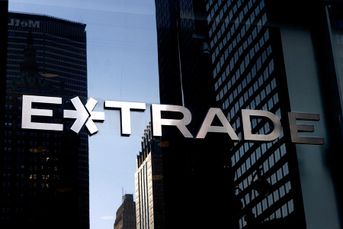Tax reform boosts fund companies’ bottom line
But will those tax savings lead to lower expense ratios?
Mutual fund companies are seeing big benefits from tax reform. How they will use that money is an open question.
The Jobs and Tax Cut Act of 2017 sliced the corporate tax rate to 21% from 35%, although it also reduced or eliminated some deductions and credits. Those tax cuts have kicked in and are showing up in first-quarter earnings reports.
T. Rowe Price, for example, reported $236.3 million in tax expense in the first quarter of 2017; that fell to $144 million in the first quarter of 2018 — a savings of $91.6 million. The fund company saw its effective tax rate fall to 24.1% in the first quarter, and expects its tax rate for 2018 to be between 24% to 27%.
“This should free up additional capital that can be dedicated to seed capital investments, acquisitions, dividends and share repurchases,” Morningstar sector strategist Greggory Warren said in his commentary on the stock.
T. Rowe Price’s tax savings also gave the company a significant bump in earnings per share, a fact it highlighted in its first-quarter earnings report. “The growth in the firm’s diluted earnings per share year over year is due in part to the significant decline in the firm’s tax rate as U.S. tax reform reduced the U.S. federal corporate tax rate beginning January 1, 2018,” the company said. T.Rowe Price stock has jumped 16.34% this year, including reinvested dividends.
Similarly, Franklin Templeton reported a $42.3 million tax savings in the first quarter, as its tax expense fell to $150.2 million from $192.5 million a year earlier. And changes to the tax code could allow the company to repatriate as much as $4 billion in cash from overseas.
Nevertheless, Franklin Templeton’s stock has fallen 14.26% this year because investors remain skeptical about its growth prospects.
Invesco also saw a nice tax abatement: Its provision for income taxes fell to $68.4 million in the first quarter from $75.7 million a year earlier, a $7.3 million savings for the $420.6 million asset manager. But tax reform hasn’t come to the aid of Invesco’s stock, which has slumped 20.96% this year on disappointing earnings growth.
Clearly, tax reform has presented most asset managers with a nice gift in the form of lower rates.
Whether those lower tax rates will result in lower fees in the asset management industry is unknown: Many fund companies are already pressured by falling fee income, and they may use their tax savings to offset some of their losses from fee revenue.
Learn more about reprints and licensing for this article.








